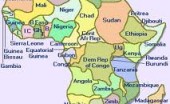Johannah Bernstein post: "eternally proud of my father’s extraordinary aeronautical engineering. legacy. here is a photo of the Canadair Water…
Wednesday Night #1571
Written by Diana Thebaud Nicholson // April 11, 2012 // Wednesday Nights // Comments Off on Wednesday Night #1571
Prologue
As some of you know, our household has been facing a few health challenges this past week, so we crave your indulgence for this somewhat scattered summary. We hope you have all enjoyed a very Happy Easter/Passover holiday and exercised proper restraint when faced with a plethora of chocolate bunnies.
Sam Stein will be with us to talk about the recent events in Mali and what they may foretell for neighbouring African nations. If you are not up-to-date on events in Mali, we suggest you see Al Jazeera’s coverage including the Explainer “Tuareg-led rebellion in north Mali” which will enlighten you regarding the aspirations of the National Movement for the Liberation of Azawad (MNLA). Meantime, the latest news is that Mali’s president stepped down as part of a deal that will transfer power from coup leaders to the parliamentary speaker. It is too long since we have discussed Africa in terms other than drought, starvation and human misery. It is time to look at the political issues, whether there are possible positive developments going forward, and in which countries.
Coincidentally, the Sauvé Scholars will be honouring Flora Terah, Kenyan Parliamentary candidate (2007) and women’s advocate, who is returning to Kenya to wage her campaign in the next election in 2012 or 2013 (the PM favours the former ,while the electoral commission has ruled for the later date). Our thoughts and best wishes go with Flora.
The Economy
Happiness indices, according to the Economist , are popping up all over the place and offer a new field for economists to measure. This could be a worthy– or at least, less dismal – alternative to the debate over austerity (which makes nobody happy).
On the austerity front, a couple of articles are of note:
Austerity vs solidarity: Democratic legitimacy and Europe’s future
German sociologist and influential European thinker Ulrich Beck recently highlighted that one of the most (problematic) prevailing contemporary tendencies is to elevate Germany’s “culture of stability” to “Europe’s guiding idea”. While it is necessary that some states take a more conscious and strict approach towards spending, national finances and public debts, this submission to a peculiar form of German Europeanism risks not solving all EU problems, while supranational institutions and democracy are fully bypassed.
And on the U.S. domestic front:
Paul Krugman’s Not Enough Inflation – in which Professor Krugman says some unkind things about Alan Greenspan. [A wonderful non sequitur – we have just learned that Alan Greenspan was a devoted follower of Ayn Rand (How Ayn Rand Seduced Young Men and Helped Make the U.S. into an Uncaring Nation)– that would explain a lot.]
Canada
The aftermath of the federal budget continues, but is dwarfed by the F-35 debate and blame game. We remain in awe (although not admiration) of the Harper government’s ability to stay on message even when the message has little if anything to do with the topic. Perhaps the most outraged – and detailed – view is Andrew Coyne’s:Peeling back the layers of misconduct in the F-35 fiasco
Margaret Lefebvre has forwarded the link to: Rushing women onto boards is risky business, study says from the Globe & Mail
“A recent study released by the German central bank found that risk taking within the banking industry increases with more women on an executive board. The same goes for younger executives. In contrast, men who are graying at the temples and executives with Ph.D. degrees reduce the level of risk.”
Margaret suggests that this brings us right back to the issue of whether or not we can use evidence-based scientific information as the basis on which to build public policy.
The article continues, “So why do more women add up to greater risk? The theory is that women have less experience in the top leadership positions at a company. The study also mentions that the addition of a member from a different background, i.e. not one of the boys, leads to greater diversity and can in turn boost conflict and hold back decision making.”
As we grit our teeth, we wouldn’t dream of suggesting that such diversity might lead to far better decisions, but will add to the pot the (far more intelligent) musings of Mohamed el-Elerian prompted by the IBM/Master’s controversy and leading to the issue of World Bank Leadership.
Finally, two items dominate the news. We might term them Titan and Titanic. The Titan is, of course, Mike Wallace, whose death is seen as the end of an era of crusading journalism conducted through devastating interviews.
The second is the phenomenal amount of hoopla surrounding the 100th anniversary of the sinking of the Titanic. With all respect to our friend Alan Hustak, we are confounded by the celebration of the tragic event, seemingly caused by the hubris of a handful of individuals (Ismay et al.), although there appear to be new findings concerning atmospheric conditions causing optical illusions (Did the Titanic sink because of an optical illusion? ). In any event, we are struck by the difference in the treatment accorded to the Titanic and the Lusitania



